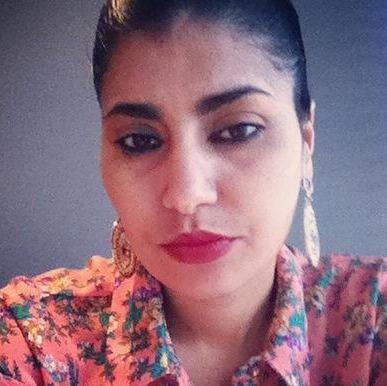Date: Tue, 19 May 2015 14:01:14 +0200
– By Agaila Abba-Ali
 Western Sahara is considered Africa’s last colony. It is recognised by the African Union (AU), of which it is a member but the AU could do more for its member by pressuring Morocco, which currently occupies the territory, to cease exploiting its natural resources.
Western Sahara is considered Africa’s last colony. It is recognised by the African Union (AU), of which it is a member but the AU could do more for its member by pressuring Morocco, which currently occupies the territory, to cease exploiting its natural resources.
***
In 1975, Western Sahara was still a Spanish colony. Morocco and Mauritania wished to assert sovereignty over the territory, which they both border, and sought an advisory opinion from the International Court of Justice (ICJ) to support their claims. The Court delivered a shock to both nations, by concluding that, according to the information presented, there was no evidence of any historical ties between either and Western Sahara. Instead, the Court supported the right to self-determination for the Saharawi people.
Despite the ICJ decision, when Spain withdrew administrative control, both Morocco and Mauritania moved in. The Saharawi Polisario Front fought a war of independence against both nations and proclaimed the Sahrawi Arab Democratic Republic (SADR). By 1979, Mauritania signed a peace treaty with the Polisario and withdrew. Morocco, however, continues to occupy most of the territory. In 1991, the Polisario and Morocco agreed a ceasefire but have failed to negotiate a final settlement. Western Sahara remains on the United Nations (UN) list of non-self-governing territories. It is considered the last remaining colony in Africa.
With its government-in-exile based in refugee camps in Tindouf, southwest Algeria, the Saharawis sought diplomatic recognition for the SADR. In 1982, the Organisation of African Unity, the predecessor body to the AU, accepted the SADR as a full member. Today, most African states recognize Western Sahara as a sovereign African nation and many speeches are made in support of Saharawi independence. In protest, Morocco left the OAU in 1984 and continues to not be a member of the AU.
Morocco controls over two-thirds of Western Sahara and, as such, has access to the territory’s natural resources, which include phosphorous and fish. Morocco exploits these resources, often with the assistance of international actors. In 2005, the European Union (EU) signed a fishery agreement to allow its member states to fish in Saharawi waters. After a huge lobbying effort from campaigners and activists, the European Parliament voted down the agreement in 2011. In 2010, a confidential legal opinion from the European Parliament’s Legal Service was published which argued that fishing by European vessels in Western Sahara’s waters was a violation of international law. This follows a 2002 legal opinion by UN legal advisor Hans Corell, which states that exploitation of the territory’s resources can only be legal if the population is both, consulted and benefits.
Some investors in the territory are now careful to stress local benefits and stakeholder engagement in an effort to keep on the right side of the law. The US-based Kosmos Energy, which is drilling for oil off the coast of Western Sahara, has a dedicated website where it sets out what it views as the community benefits of its operations. Critics, however, argue that any engagement with Morocco over Western Sahara’s resources is necessarily antithetical to Saharawi interests as it indirectly supports the massive military occupation of the territory and the 2700km-long wall that separates Moroccan-controlled from SADR-controlled Western Sahara.
The AU supports Western Sahara and condemns Morocco’s occupation. However, until now, this has mainly taken the form of warm words at summits, with little action or focus on resources. This may be changing. At the most recent meeting of the AU’s Peace and Security Council on 27 March, chairperson of the African Union Commission Nkosazana Dlamini-Zuma presented her report on the Western Sahara peace process. The report included concerns over the “illegal exploitation of the natural resources of the Territory” emerged from discussions the AU’s Special Envoy, former President Joaquim Chissano of Mozambique, undertook. After the Dlamini-Zuma presented her report, the Council issued a communiqué that “recommends consideration of a strategy of global boycott of products of companies involved in the illegal exploitation of the natural resources of Western Sahara.”
African states should support this move, take their solidarity to the next level and work to actively sanction companies exploiting Western Sahara’s resources. Africa should be prepared to ratchet up sanctions, if necessary, to demonstrate solidarity, if no movement is forthcoming in the peace process and Saharawis continue to be denied self-determination.
The time for African solidarity is now.
Agaila Abba-Ali is a Saharawi poet and writer.